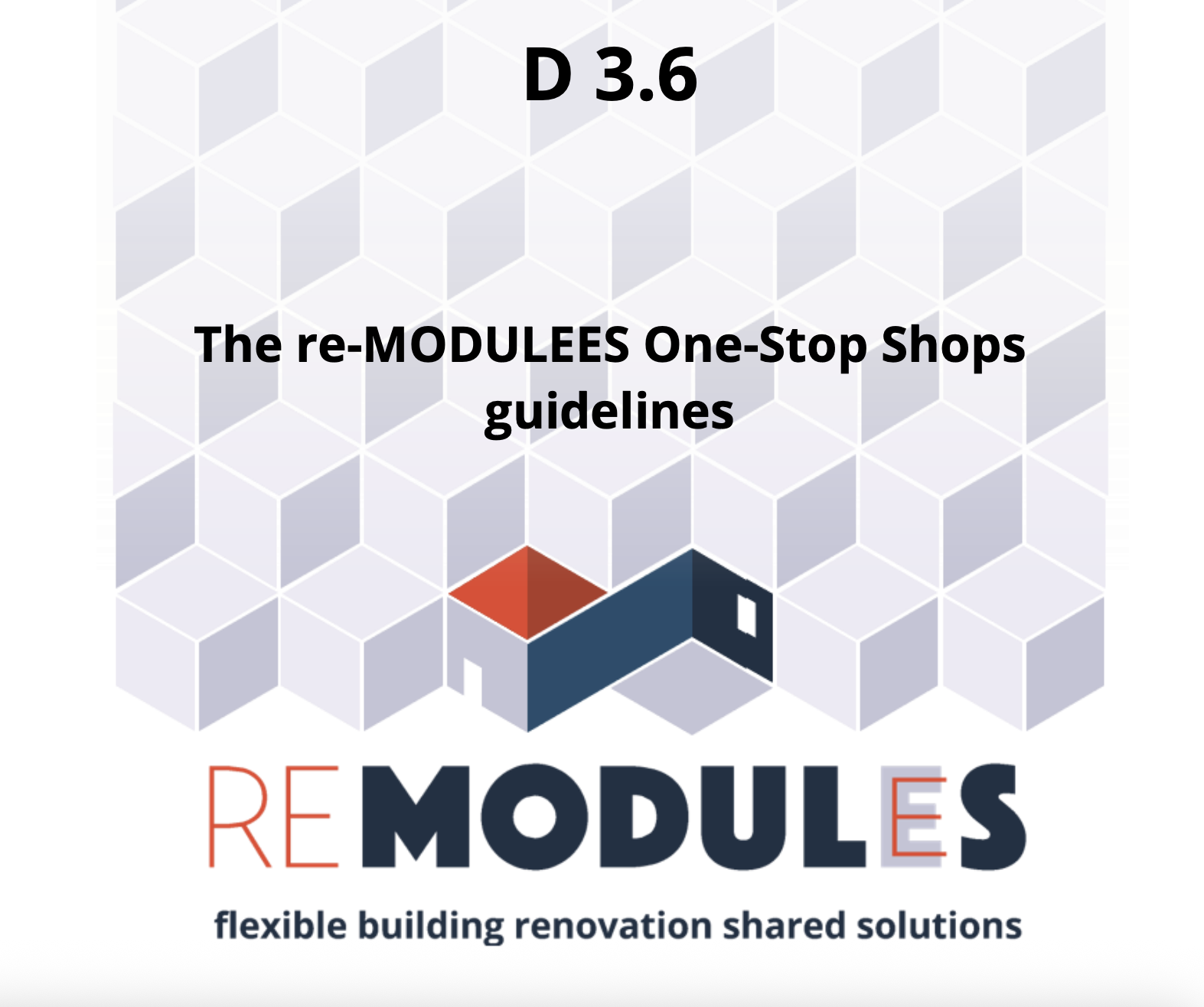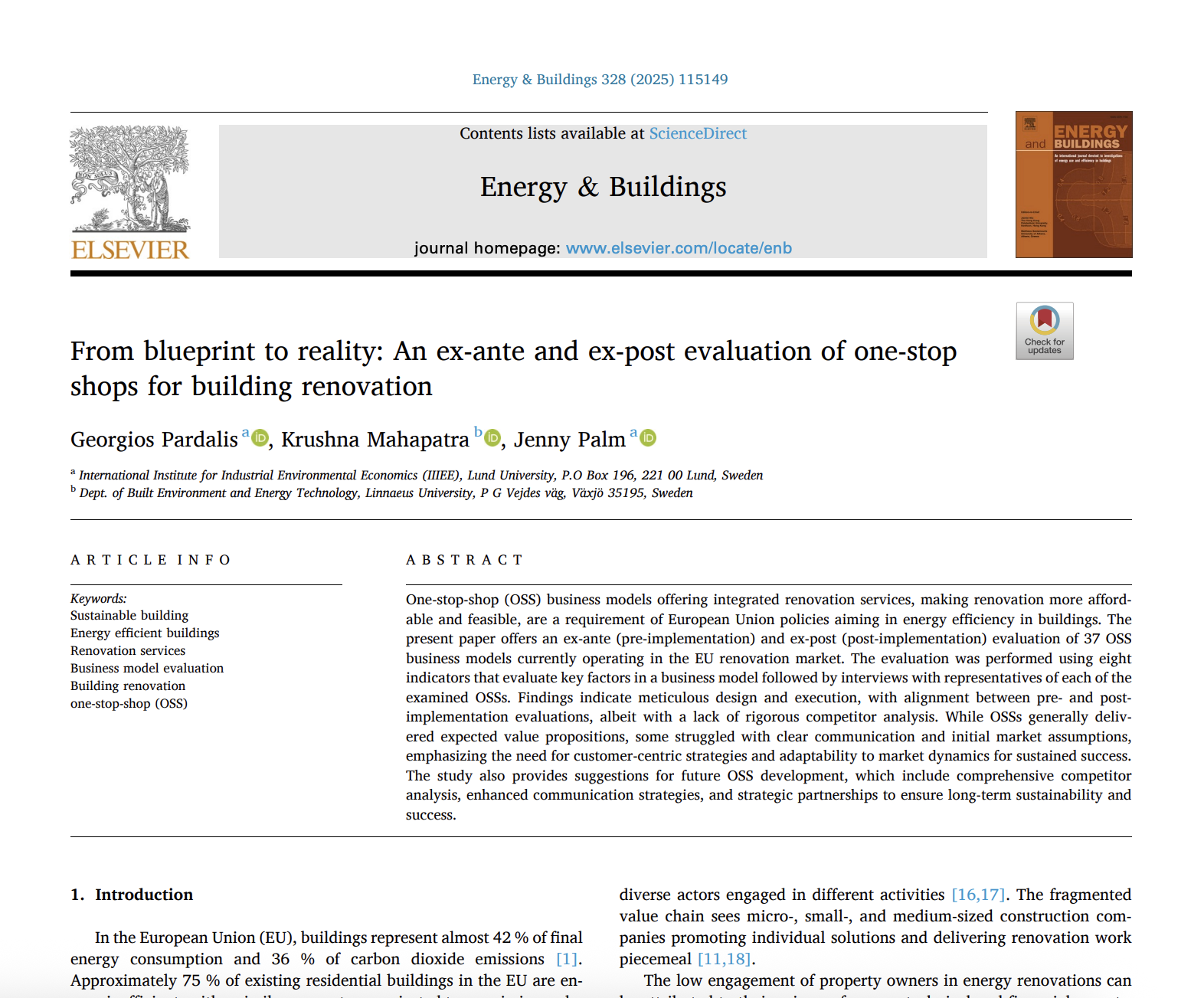
Energy One-Stop-Shop - A guide for energy efficiency in Home-Owned Multi-Apartment Buildings
The Guideline for OSS Service Providers developed within the RenoWave project is a practical and comprehensive resource for organisations that already operate, plan to establish, or support an Energy One-Stop-Shop (OSS) for home-owned multi-apartment buildings (HOMABs). The guide explains why energy efficiency is essential for the Baltic Sea Region, outlines the policy framework shaped by the revised Energy Performance of Buildings Directive (EPBD), and describes the diverse renovation challenges across different ownership models. At its core, the document presents a step-by-step approach for building an effective OSS: analysing market gaps, choosing the appropriate organisational model, defining target groups, designing a viable business model, and launching services in cooperation with local stakeholders. It details the key pillars of a successful OSS—overview and detection of building stock, marketing and communication, training, collaboration forums, and technical assistance—providing actionable recommendations for each. The guide emphasises the value of OSSs as neutral, trusted facilitators that simplify renovation journeys for homeowners by offering a single access point for information, financial guidance, supplier coordination, and technical expertise. Through best practice examples from across the Baltic Sea Region, it showcases how data-driven tools, targeted communication, and collaborative networks can accelerate energy-efficient renovations and strengthen local market capacity.

Energy One-Stop-Shop - A guide for energy efficiency in Home-Owned Multi-Apartment Buildings
The Guideline for OSS Service Providers developed within the RenoWave project is a practical and comprehensive resource for organisations that already operate, plan to establish, or support an Energy One-Stop-Shop (OSS) for home-owned multi-apartment buildings (HOMABs). The guide explains why energy efficiency is essential for the Baltic Sea Region, outlines the policy framework shaped by the revised Energy Performance of Buildings Directive (EPBD), and describes the diverse renovation challenges across different ownership models. At its core, the document presents a step-by-step approach for building an effective OSS: analysing market gaps, choosing the appropriate organisational model, defining target groups, designing a viable business model, and launching services in cooperation with local stakeholders. It details the key pillars of a successful OSS—overview and detection of building stock, marketing and communication, training, collaboration forums, and technical assistance—providing actionable recommendations for each. The guide emphasises the value of OSSs as neutral, trusted facilitators that simplify renovation journeys for homeowners by offering a single access point for information, financial guidance, supplier coordination, and technical expertise. Through best practice examples from across the Baltic Sea Region, it showcases how data-driven tools, targeted communication, and collaborative networks can accelerate energy-efficient renovations and strengthen local market capacity.
Empower yourself by becoming a member of EU Peers Community of Practice!
Empower yourself by becoming a member of EU Peers Community of Practice!
Expand your knowledge, connect with other organisations, and scale up the sector of IHRS by joining the vibrant and evergrowing Community of Practice




